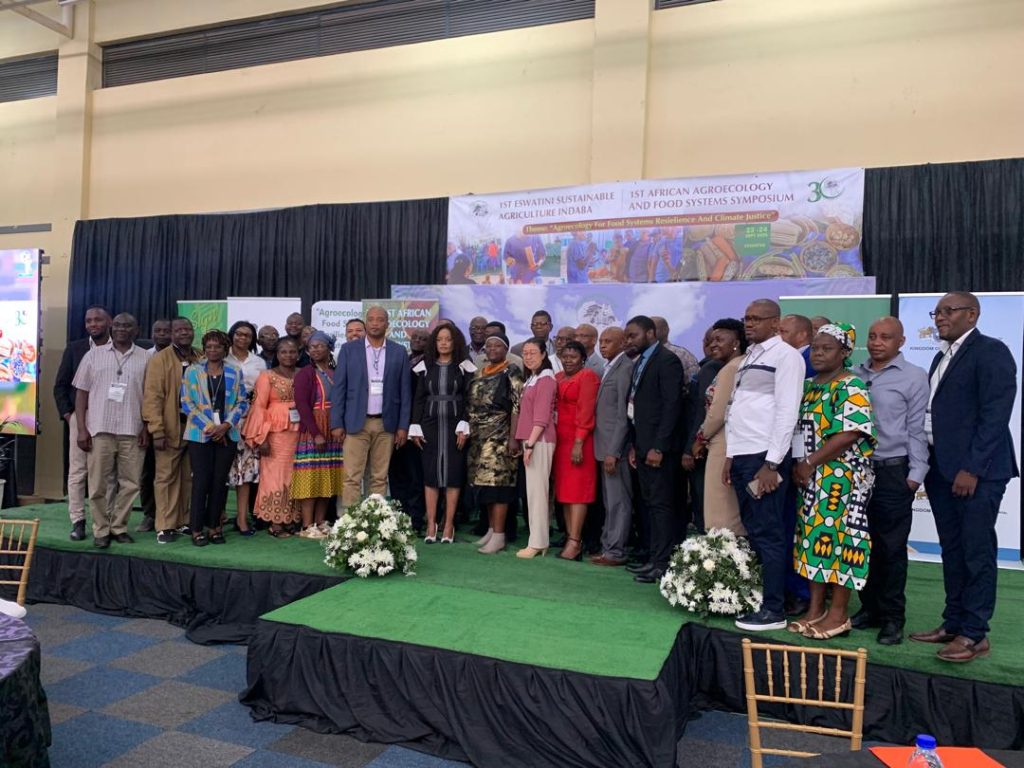
By Tlalane Dlamini
The shift in global food security strategy is moving decisively away from reliance on monoculture toward resilient, localised solutions. This critical transition was underscored at the 1st National Sustainable Agriculture Indaba, where Thandie Lupupa, Genebank Manager at the World Vegetable Center, presented a powerful case for institutionalising Farmer Managed Seed Systems (FMSS).
These systems are positioned not just as a traditional practice, but as the strategic future for achieving food sovereignty, biodiversity, and sustained economic health in the agricultural sector.
FMSS: Diversity as Economic Resilience
FMSS is a framework of practices developed by farmers based on collective knowledge, customs, and tradition, governing every stage of the seed life cycle. Lupupa highlighted how this indigenous knowledge directly counters modern climate risk.
“Farmers use crop diversity to spread the risk, adapt to climate change variation, and to increase resilience,” Lupupa stated, citing the established practice of mixing crops like maize, sweet sorghum, pumpkin, and cowpea in one field. This strategic intercropping ensures that a shock to one variety does not wipe out the entire harvest.
This approach means that quality control is decentralised and continuous. Farmers select for preferred traits directly from their harvest, ensuring their seed stock is perpetually optimised for local soil, climate, and community needs—a critical form of supply chain that maximises local input.


Community Seed Banks: A Localised Supply Chain Model
The successful scaling and formalisation of FMSS is achieved through Community Seed Banks (CSBs). These local institutions are vital for maintaining the supply chain of locally adaptive crops.
CSBs function as community seed reserves, guaranteeing a reliable source of seeds immediately following droughts, floods, and other environmental shocks. Their existence is vital because, as Lupupa noted, the “broader the genetic base, the stronger the resilience to climate change.”
CSBs are governed by farmers, who are organised into formal cooperatives. Their working committees handle essential management duties, including record-keeping, monitoring seed viability, and managing income-generation activities and credit schemes for members. This local management ensures the sustainability and accountability of the seed supply chain.
Policy and Commercialisation: Unlocking Farmer Rights
To ensure these systems flourish, they require a supportive legal and commercial environment. Lupupa stressed that policies must adopt Farmers’ Rights, as recognised in Article 9 of the International Treaty on Plant Genetic Resources for Food and Agriculture (PGRFA).
Lupupa emphasised that the treaty is crucial because it “recognises the enormous contribution of farmers in the maintenance of crop diversity and Indigenous Knowledge—passed on from generation to generation.”
These rights include the freedom for farmers to save, use, exchange, and sell farm-saved seeds. Implementing these rights requires a governmental review of national seed certification laws that might inadvertently suppress the local exchange of these genetically diverse farmer varieties.


The Path to Commercial Viability
The ultimate goal is to connect this biological wealth with the formal market. The presentation detailed a collaborative crop evaluation process involving researchers, Seed Quality Control Services, the Genebank, and the World Vegetable Center.
The final call to action focused on institutionalising the FMSS model into a national strategy: “Strengthening of FMSS needs to be a cornerstone of climate resilience, food sovereignty, and agro-ecological farming systems through CSBs,” Lupupa urged.
This means:
1. Scaling CSBs to all districts to promote FMSS and the utilisation of nutrient-dense landraces.
2. Developing a Farmer Variety registration framework to facilitate the official commercialisation of traditional, farmer-selected varieties.
By integrating these robust, farmer-led systems into the national economic fabric, the agricultural sector can secure a more sustainable, profitable, and resilient future.
